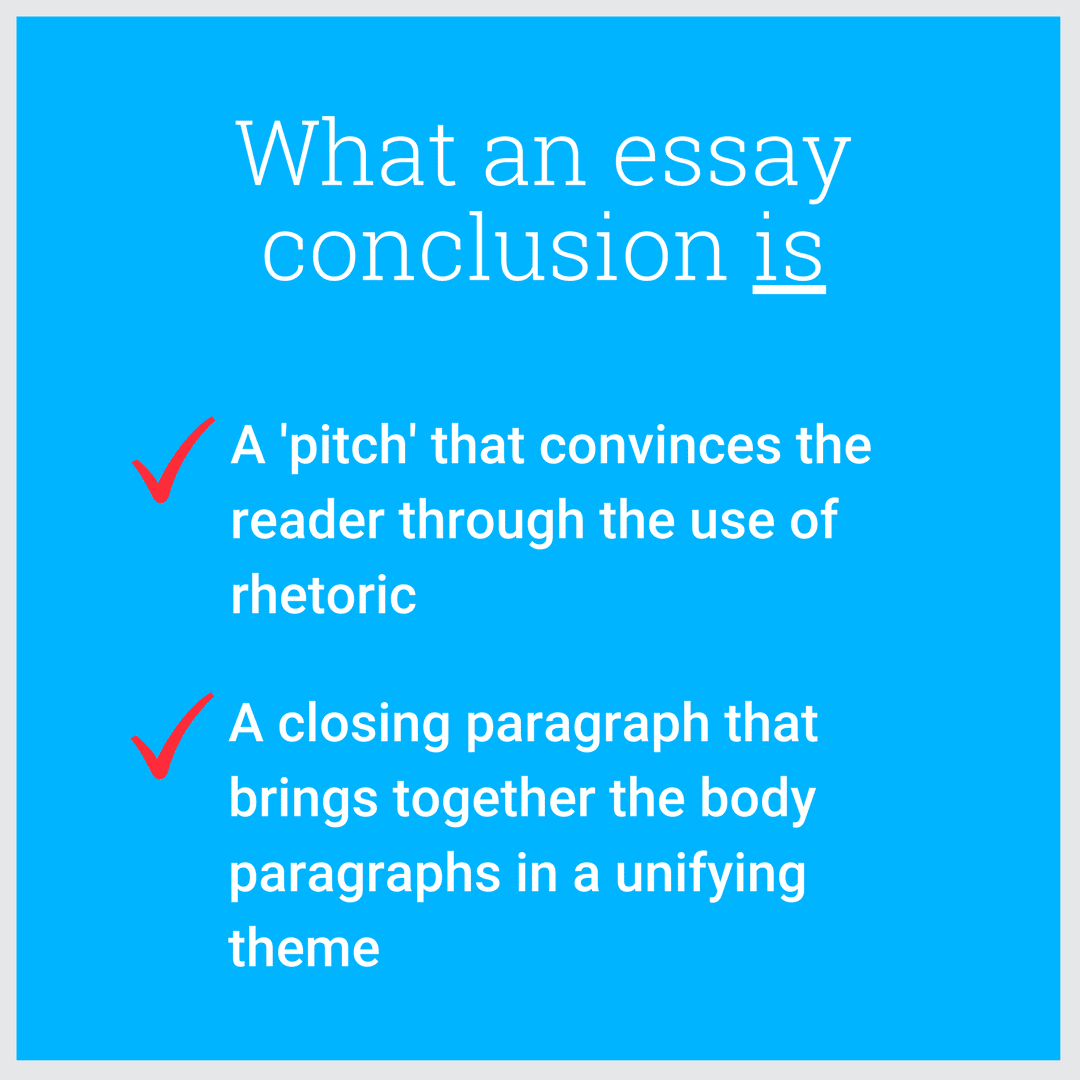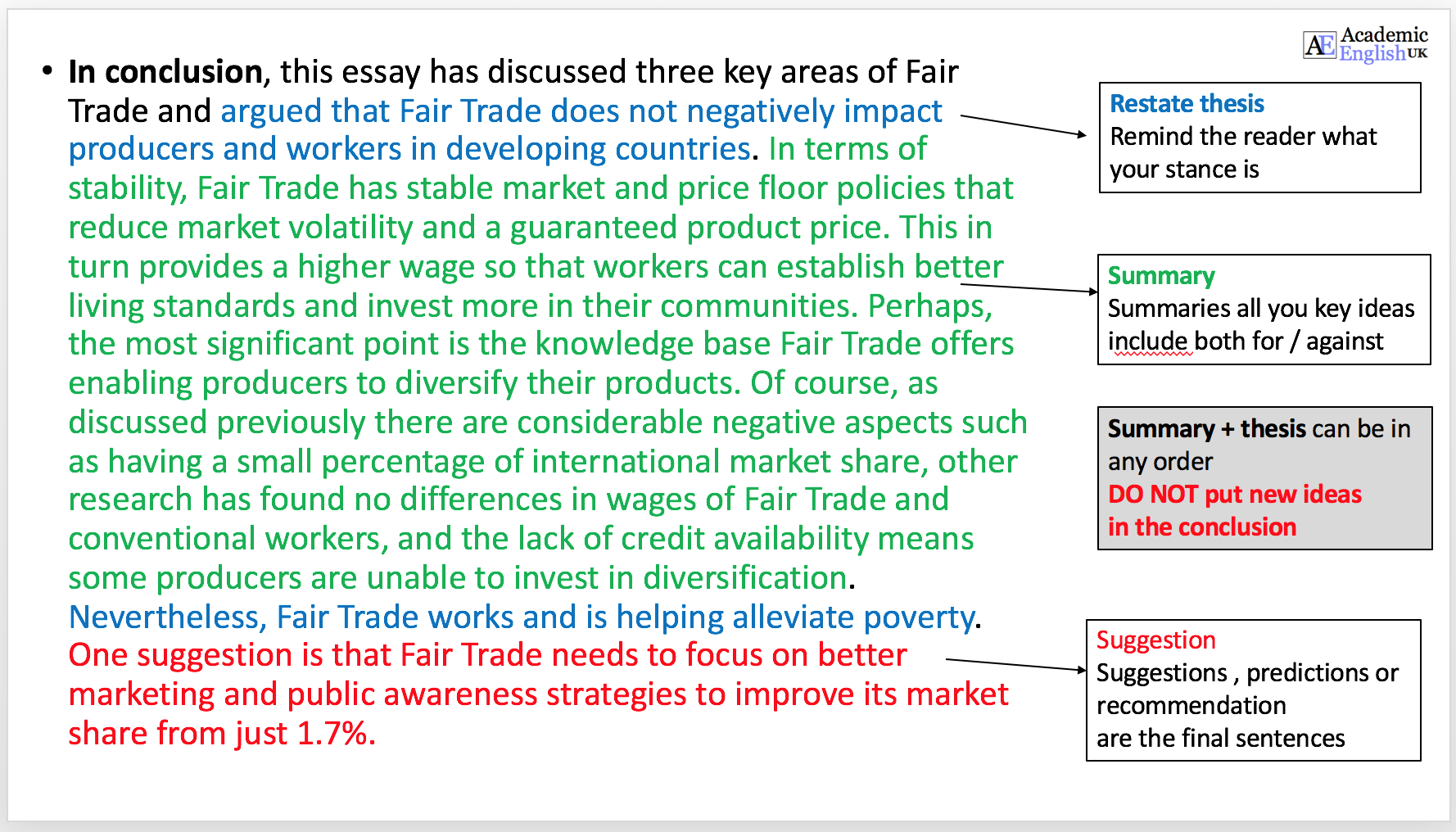
Quick Links
· The most important part of a conclusion paragraph for an argumentative essay is your tone. Speak with authority. Review your college argumentative essay outline and bring your most compelling points back to the foreground with some reminders of evidence · An essay conclusion needs to use rhetoric to emotionally connect with the reader in some way. And this is done through the use of certain Estimated Reading Time: 10 mins 50 most effective words to conclude an essay As Can Be Seen After All By And Large Generally Speaking In Fact To Sum Up In the Final Analysis On the Whole All Things Considered In Any Event As Shown Above In Short In Either Case All in All In the Long Run In Brief Given These Points In Essence As Has Been Noted In A Word On Balance
Quick Navigation
· How to conclude an essay: 1. Avoid introducing new ideas to the narrative. 2. Reflect on your previous statements. 3. Convince the audience your opinion is a legitimate one. 4. Recap the main idea of the text in one paragraph. 5. Present your argument in a coherent way. 6. Leave the readers with a positive impression · To end an essay, start your conclusion with a phrase that makes it clear your essay is coming to a close, like "In summary," or "All things considered." Then, use a few sentences to briefly summarize the main points of your essay by rephrasing the topic sentences of your body blogger.com: 3,1M · The most important part of a conclusion paragraph for an argumentative essay is your tone. Speak with authority. Review your college argumentative essay outline and bring your most compelling points back to the foreground with some reminders of evidence

How to conclude an essay:
· To end an essay, start your conclusion with a phrase that makes it clear your essay is coming to a close, like "In summary," or "All things considered." Then, use a few sentences to briefly summarize the main points of your essay by rephrasing the topic sentences of your body blogger.com: 3,1M · A strong conclusion aims to: Tie together the essay’s main points Show why your argument matters Leave the reader with a strong impressionReviews: 2 50 most effective words to conclude an essay As Can Be Seen After All By And Large Generally Speaking In Fact To Sum Up In the Final Analysis On the Whole All Things Considered In Any Event As Shown Above In Short In Either Case All in All In the Long Run In Brief Given These Points In Essence As Has Been Noted In A Word On Balance

Calculate the price of your order
50 most effective words to conclude an essay As Can Be Seen After All By And Large Generally Speaking In Fact To Sum Up In the Final Analysis On the Whole All Things Considered In Any Event As Shown Above In Short In Either Case All in All In the Long Run In Brief Given These Points In Essence As Has Been Noted In A Word On Balance · An essay conclusion needs to use rhetoric to emotionally connect with the reader in some way. And this is done through the use of certain Estimated Reading Time: 10 mins · How to conclude an essay: 1. Avoid introducing new ideas to the narrative. 2. Reflect on your previous statements. 3. Convince the audience your opinion is a legitimate one. 4. Recap the main idea of the text in one paragraph. 5. Present your argument in a coherent way. 6. Leave the readers with a positive impression
How to Write a Conclusion for an Essay: Easy Tips
· An effective conclusion is created by following these steps: 1. Restate the thesis An effective conclusion brings the reader back to the main point, reminding the reader of the purpose of the essay. However, avoid repeating the thesis verbatim. Paraphrase your argument slightly while still preserving the primary point. 2 · A strong conclusion aims to: Tie together the essay’s main points Show why your argument matters Leave the reader with a strong impressionReviews: 2 Conclude with a quotation from or reference to a primary or secondary source, one that amplifies your main point or puts it in a different perspective. A quotation from, say, the novel or poem you're writing about can add texture and specificity to your discussion; a critic or scholar can help confirm or complicate your final point
No comments:
Post a Comment